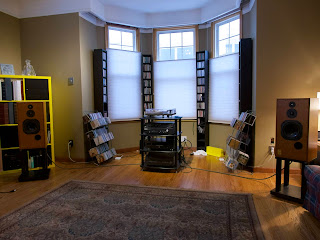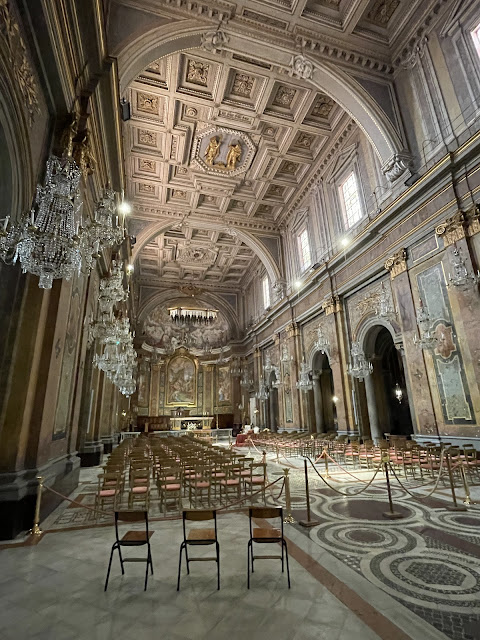Sacred Music During COVID
In our particular part of the world we were afflicted with a significant outbreak of COVID19 early on especially in nursing homes. Sadly, many people did die. Like many places, our experience in the summer improved and then we have seen a concerning rise in cases in since the fall began.
We began to celebrate Mass, under modified circumstances (limited seating, distancing, use of masks) since late June. One item that stuck out for me was that singing, except by musicians sufficiently distanced was out. Some parishes have chosen to have Masses without music. We have been able, at St. Gregory's, to have our musicians offer their gifts while we, priest and congregants have restricted ourselves to the spoken word.
One of the great debates in the Catholic Church when I was younger was an appreciation of the participation of all worshippers in the acts of worship. Music without congregational participation was seen by some as merely performance and was to be shunned.
Liturgical music in the Catholic Church has, however, had a long history which includes elements of performance. You could even say that some "performance" pieces represent a high water mark in western music. There was a time (not so long ago even) that composers who saw themselves as serious wanted to be able to put in their catalogue of compositions, a Mass setting. And it is still going on.
During this time of COVID, the work of the musicians has become an offering of their gifts, an evocation of their prayer, which we receive and echo by giving thanks. Without their participation, the worship would be less and our worship would be less.
Listening to the music also tunes us into listening . . . something that is very important for the prayers of the Mass and the effective proclamation of Scripture.
I have quite a few recordings of sacred music, some by very accomplished musicians. The recordings I enjoy the most, however, are the ones that are either by musicians who regularly sing or play in worship or who are actually recorded during worship. There is a freedom . . . of giving themselves away . . . of allowing God to use the music.
Having this time to listen may also help us not to take our musical contributions to worship and prayer lightly. A familiar hymn, sometimes can be too familiar. Listening to the words might ignite or re-ignite something in our living faith.
I have always loved the richness of our traditions. The earlier Catholic tradition is of chant for the parts of the Mass. Hymns really came later as an aid to worship. Varied and layered in different centuries has been all kinds of invention and ornamentation of music to heighten aspects or themes within the Liturgy of the Church. From this has come a kind of universal gift and also a diversely enculturated one.
From Gregorian chant, to polyphony, to settings that adopt new rhythms and musical architecture from the places where the faith has taken root.
As the Benedictus says: "Help us to walk in the way of peace."
Just a share of the same video posted separately sent to me by Michelle Kettrick and Carm Lappano.
https://youtu.be/TCW9GO-CUG4.


